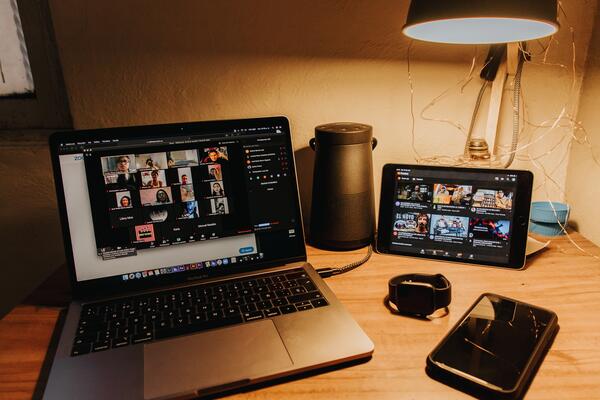
Protecting our mental health
How to manage stress and anxiety during the COVID-19 pandemic

How to manage stress and anxiety during the COVID-19 pandemic
By Stephanie Longeway University RelationsIn the wake of COVID-19, many in our community are overwhelmed with fear and uncertainty. Being separated from our loved ones and unable to go about our lives in any normal way, is adding to this stress and causing increased anxiety for many people.
Christine Purdon is a Waterloo professor and expert in how these emotions affect our mental health. On Wednesday, May 6, she joined us for the first in a series of Ask our Expert community talks to answer questions about COVID-19 and mental health, as well as share her tips for managing anxiety during the pandemic.
“Now that we are through the initial phase of adjusting to our new realities … we are in the phase of understanding how we are feeling, and whether it is normal,” Purdon says, a registered psychologist and a certified therapist.
“Stress is a natural reaction to our current circumstances … there are lots of reasons to be anxious,” she adds. Purdon explains that when we find ourselves in situations where we have more demands placed on us and less capacity to cope, our stress levels can grow higher and higher.
Many of us are working or studying from home — maybe even both — and there is more demand to care for family and loved ones. At the same time, our usual coping mechanisms may not be available, like playing a sport or going out with friends. This all leads to more stress, but it is important for us to recognize when stress becomes a more serious mental health concern.
Purdon says that anxiety could possibly become a mental health issue if it’s getting in the way of completing the important tasks and routines we normally do. She notes that if you experience a loss of sleep or appetite, or if you are over sleeping or eating, that could also be an indication of a serious issue if it is continues for more than a two-week span.
“Even when we’re stressed, we can continue to work and parent — even though it may not be as well as before,” Purdon says. “When there’s a mental health problem, it’s difficult to see the bright side and continue to do the things we do.”
Purdon advises that if you experience any thoughts of hopelessness or helplessness, especially if you have thoughts of suicide, you need to speak with a mental health professional.
We’re likely all dealing with some level of anxiety during the COVID-19 pandemic, and Purdon offered a few coping tips.
“Anxiety makes us threat sensitive, putting us on high alert,” Purdon says. The continuous news cycle is no doubt contributing to this, when really it should be a source of information to help us manage threat levels.
Purdon says that the, “Best way to manage anxiety is to portion out time for news.” She recommends that we check-in two times a day for 20 minutes and only two to three reputable news sources to get the factual information we need to stay informed, and then “turn it off.”
Purdon suggests that we try to find ways to cope by staying connected to the things and people who share our interests. She recommends joining digital book clubs, church services, or other online community groups. Purdon also says it’s important to remember to reach out to friends and family to avoid feeling lonely or isolated.
We need to understand that we’re are all expending a lot of mental energy right now, and this will inevitably impact our day-to-day lives.
“It’s OK that we are not going to be functioning at the same level as we used,” Purdon says. “We need to have compassion for others and ourselves.”
Purdon was recently interviewed for Waterloo’s Beyond the Bulletin podcast. Listen to her discuss more ways we can manage anxiety during the coronavirus pandemic.
Next week, our Waterloo expert will be John Hirdes from the School of Public Health and Health Systems. With more than a third of long-term care homes in Ontario experiencing a COVID-19 outbreak, it may seem like there’s nothing that can be done to help our parents and grandparents deal with the pandemic. But Professor Hirdes and his team of international researchers have developed a new screening tool that anyone can use to help older loved ones stay safe.
On Wednesday, May 13 at noon, Hirdes will share his work with us and answer your questions about COVID-19 and older adults.

Read more
From research to 3D-printed masks and equipment donations, the University community is mobilizing to combat the coronavirus here at home and globally

Read more
When Mykayla Turner’s final recital was cancelled due to Covid-19, she decided to share her music online to bring peace and hope to others

Read more
Studies look at tools to help make the technology more effective
The University of Waterloo acknowledges that much of our work takes place on the traditional territory of the Neutral, Anishinaabeg, and Haudenosaunee peoples. Our main campus is situated on the Haldimand Tract, the land granted to the Six Nations that includes six miles on each side of the Grand River. Our active work toward reconciliation takes place across our campuses through research, learning, teaching, and community building, and is co-ordinated within the Office of Indigenous Relations.